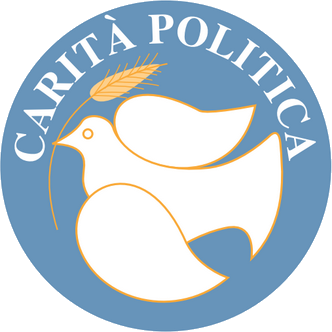CARITÀ POLITICA SECOND DAY
On 21st February 1996, Ash Wednesday, the Carità Politica Second Day was celebrated in Rome at the Gregorian University. In 1995 the theme of the day was "fraternity". That year was that of "solidarity", according to the 5 research itineraries chosen by the Association in preparation for the Jubilee of 2000: fraternity, solidarity, faith, hope and charity.
Ash Wednesday, opening the time of Lent, reminds us of the forty days when Jesus withdrew into the desert to prepare for his extraordinary "public life". Everyone, but especially those engaged in politics, should experience on this day with great strength the need for moments of reflection and a new inner conversion.
Among those present were Cardinal Vincenzo Fagiolo, Father Giuseppe Pittau and Father Joseph Joblin of the Gregorian, Father Enrique Colom of the Holy Cross University.
CATHOLIC SCHOOL AND SOCIAL SOLIDARITY
On 21st March 1996, a meeting on Catholic School and Social Solidarity was held at the Pontifical Gregorian University. Starting from the "Unitary Platform prepared by the School Group of the National Office for Education and the School of the Italian Bishops' Conference", the meeting aimed to offer real proposals for the implementation of a public education system in which state and state-recognised private schools compete. In particular, the aim was to provide a persuasive and effective response capable of becoming a real way of financial intervention by the Italian State able to overcome today's disparity which penalises both the non-state school and the families who choose it.
The meeting was attended by the following speakers: Cardinal Pio Laghi, Dr. Francesco Paolo Casavola, President Emeritus of the Constitutional Court; Dr. Mario Cicala, Councillor of the Supreme Court, Monsignor Vincenzo Zani, Head of the CEI School Office.
BUSINESS AND SOLIDARITY
From 26th to 28th April 1996 an international convention on Business and Solidarity was held in Cremona.
Representatives of craftsmanship and small and medium sized enterprises from Italy and the countries of counter-eastern Europe, Poland, Hungary, the Czech Republic, Slovakia, Romania, Bulgaria, Slovenia and Croatia, accompanied by the Ambassadors of these countries to the Holy See, took part. There were also Cardinal Vincenzo Fagiolo and the Bishop of Cremona Giglio Nicolini, as well as the National President of CONFABI Dr. Luciano Bolzoni and the National Delegate for International Relations, Dr. Flavio Presotti.
For development to effectively become the path to peace, solidarity between peoples is needed: a solidarity without borders and politically structured according to the demands of an international common good: the common good of the human family, required by today's planetary interdependence of men and nations, which is making the world one great polis.
PONTIFICAL RECOGNITION OF CARITÀ POLITICA ASSOCIATION
Knowing and appreciating the different and several activities of the Association, the Holy See issued the Decree of Pontifical Recognition on the 27th September 1996.
The Decree reinforces the positive and fervent activity of the Association and the wide range of its relations also at international level.
Here are three notes of a purely juridical nature: it is an association without territorial boundaries within the Church; it therefore has the right of existence, exercise and validity before any diocesan ordinary and episcopal conferences: it is international. This comes also and mainly from the juridical configuration that has given it a department of the Holy See, which has declared it a pontifical right, with legal personality, in other words, erga omnes (towards all). The third is a private association of the faithful, according to the norms of canons 321-329, which establish its validity on the basis of the statutes, entrust its direction to the faithful, and recognise its juridical personality.



